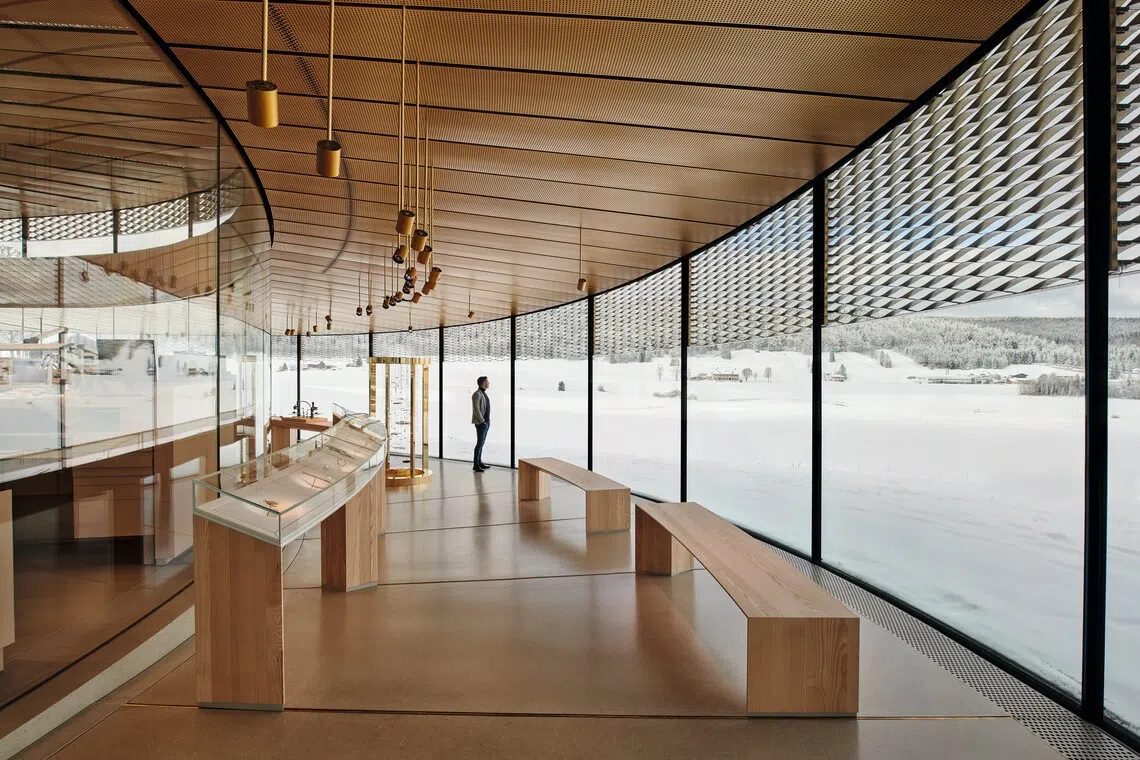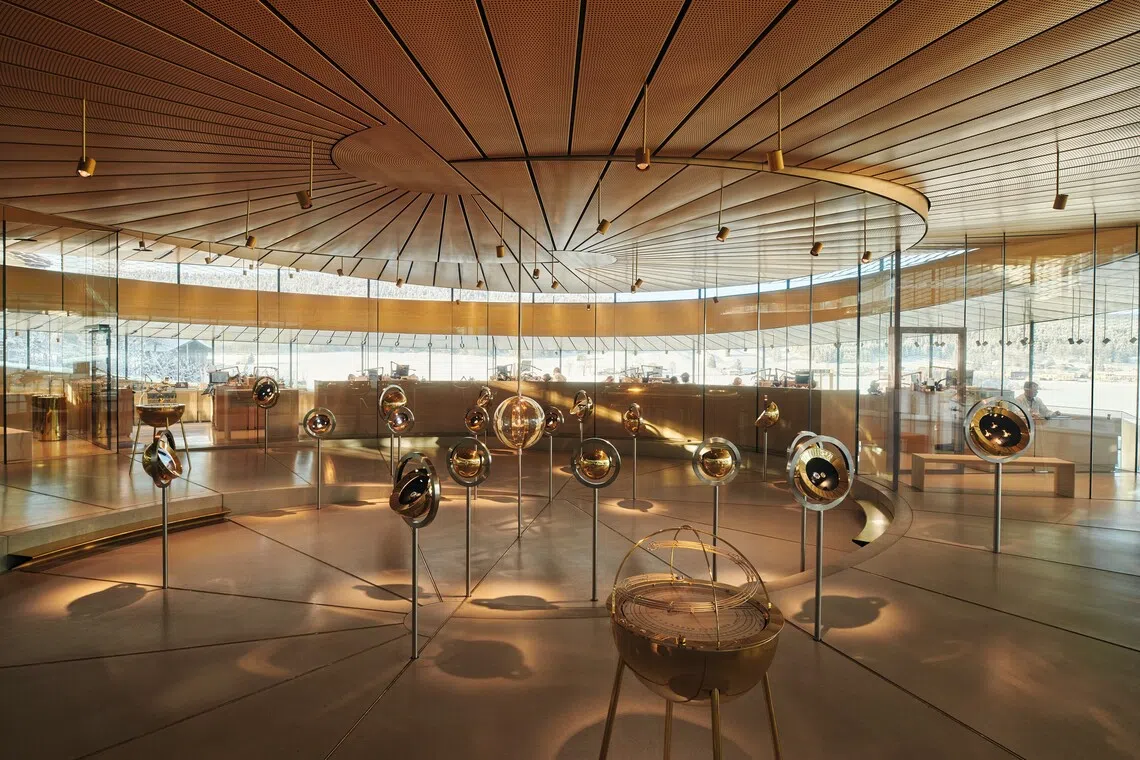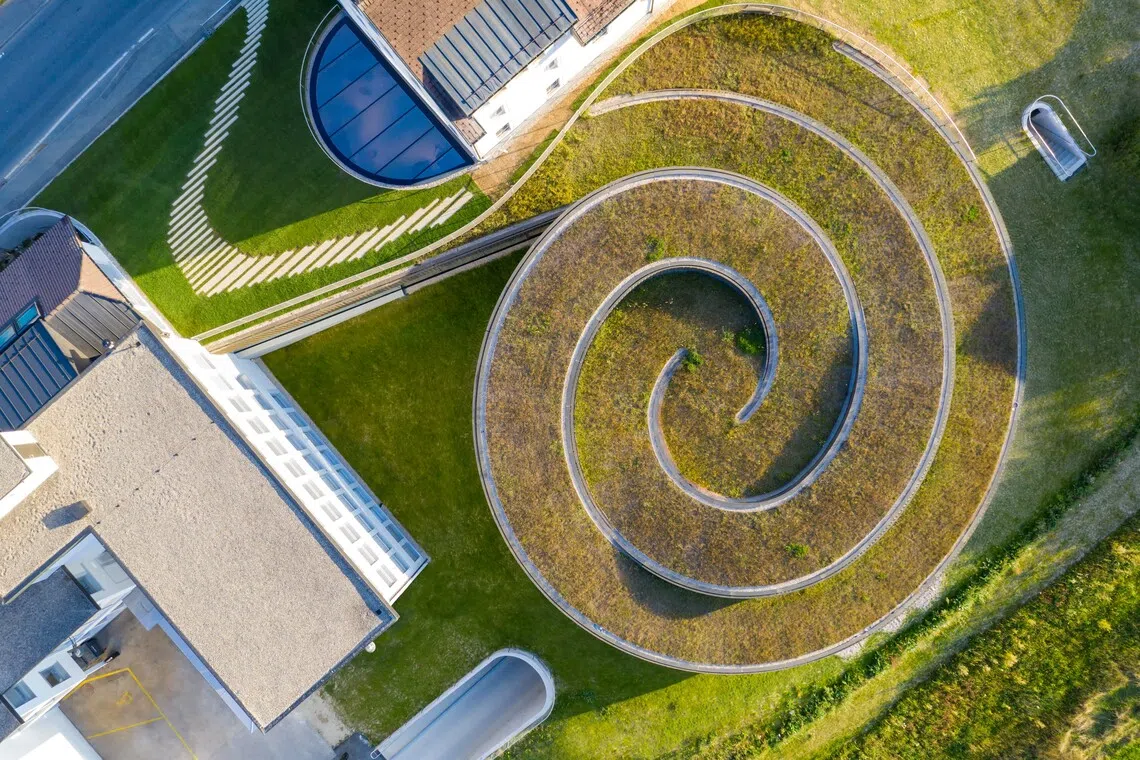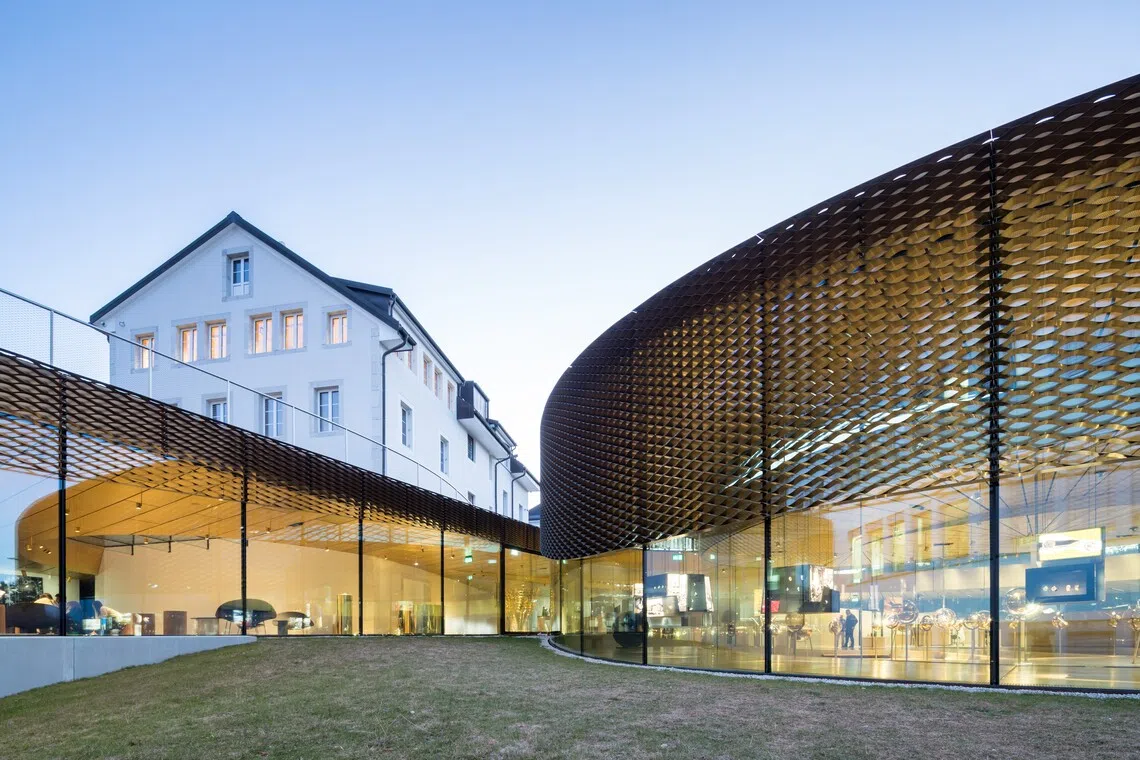Showcasing the past, present and future
Audemars Piguet’s history and savoire-faire is woven through both its new museum architecture and the rare timepieces on show

JUST like the precious watches on display, the architecture of the Musee Atelier Audemars Piguet is a work of art.
Built and designed by the same teams behind the Hotel Des Horlogers next door, it is a sight to behold from whichever angle you look at it.

Instead of walls and columns, 108 load-bearing curved glass walls are used for the facade of the museum to allow for unobstructed views of the Vallee de Joux; while brass mesh help keep out the sunlight.
Viewed from the top, you will see the museum “rising” from the ground, thanks to the spiral lawn-covered roof that not only blends with the surrounding meadows but also absorbs rain water to regulate the temperature of the building.
The spiral also integrates the new Musee Atelier Audemars Piguet seamlessly with the historical building next door which housed the previous museum from 1992 to 2019, and was the original workshop that Jules Louis Audemars and Edward Auguste set up in 1875.
This link to the past and present is also reflected through the Restoration Atelier located at the top of the building and spiral, and the Grandes Complications and Metiers d’Art workshops at the bottom in the museum.
Navigate Asia in
a new global order
Get the insights delivered to your inbox.

Besides resembling a watch’s hairspring – the heart of every mechanical timepiece – the roof also evokes the spirit of the dial of the 1962 Asymmetrical watch which is on display in the museum, alongside other rare pieces produced during the post-war years from the 1940-60s when Audemars Piguet would experiment with various geometrical shapes and sizes.

It is enough to prove the naysayers who often criticise the brand’s over-reliance on its popular Royal Oak watches wrong; and the 300-odd watches spanning two centuries of horological savoire-faire exude the same bold, ambitious and vision that is seen in the museum’s architecture.

The Musee Atelier Audemars Piguet also touts itself as a “living” museum where visitors can not only interact with the ateliers’ craftsmen but also enjoy also other art works such as a three-dimensional tree presenting the most important families of the Vallee de Joux in the Founders Hall and a “whistling walker” installation imagined by Swiss automaton artisan François Junod that re-interprets the functions of a watch’s escapement.
Visitors to the museum need to book in advance; while guests of Hotel Des Horlogers can make their interest known during reservation.
For more information and booking information, visit www.museeatelier-audemarspiguet.com
Decoding Asia newsletter: your guide to navigating Asia in a new global order. Sign up here to get Decoding Asia newsletter. Delivered to your inbox. Free.
Copyright SPH Media. All rights reserved.



